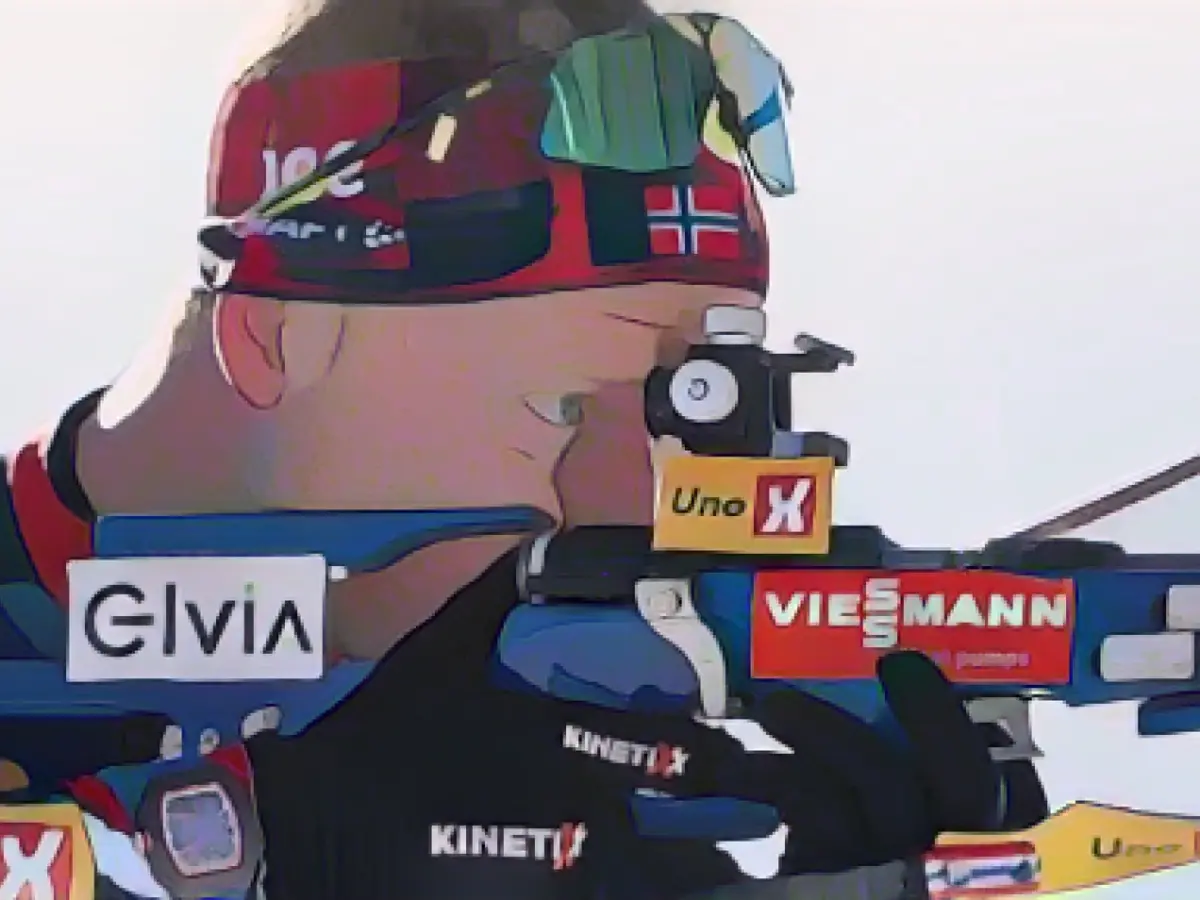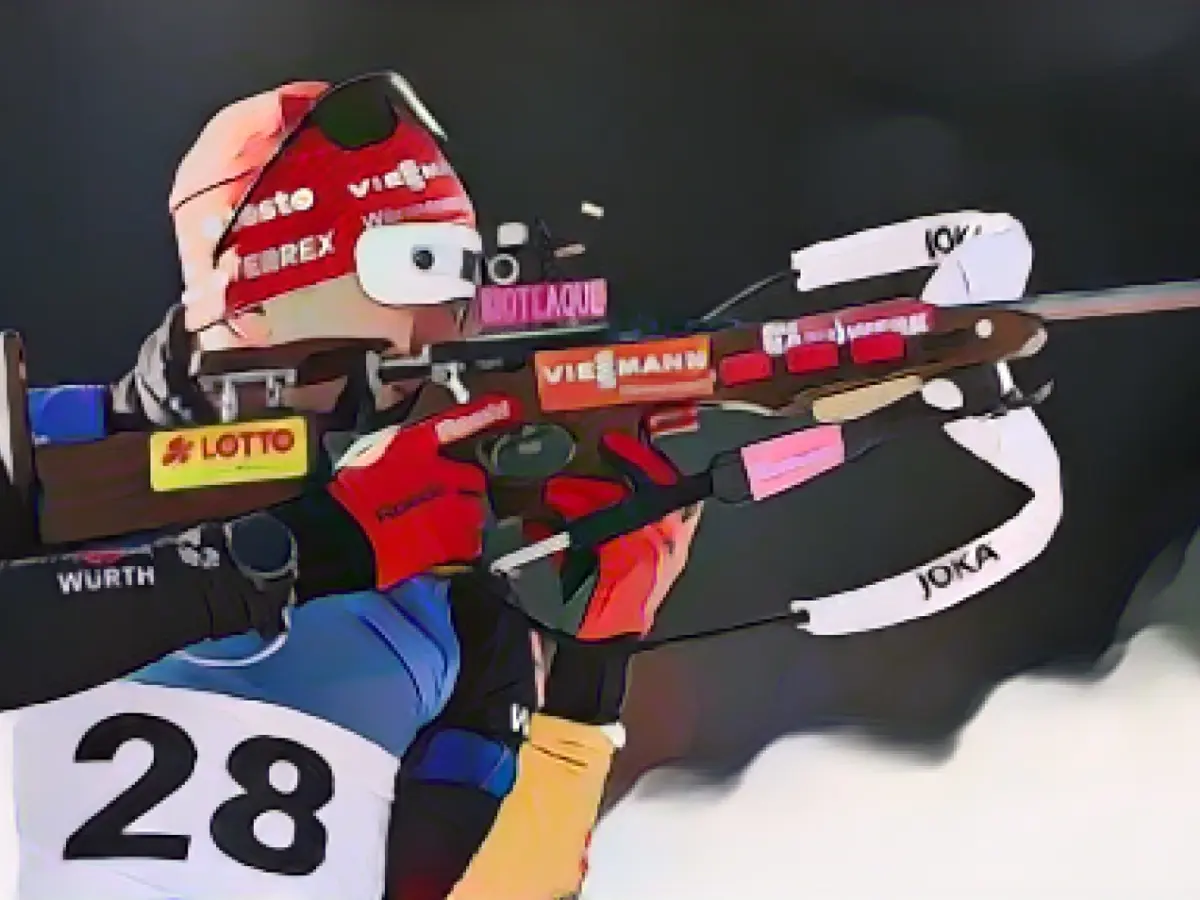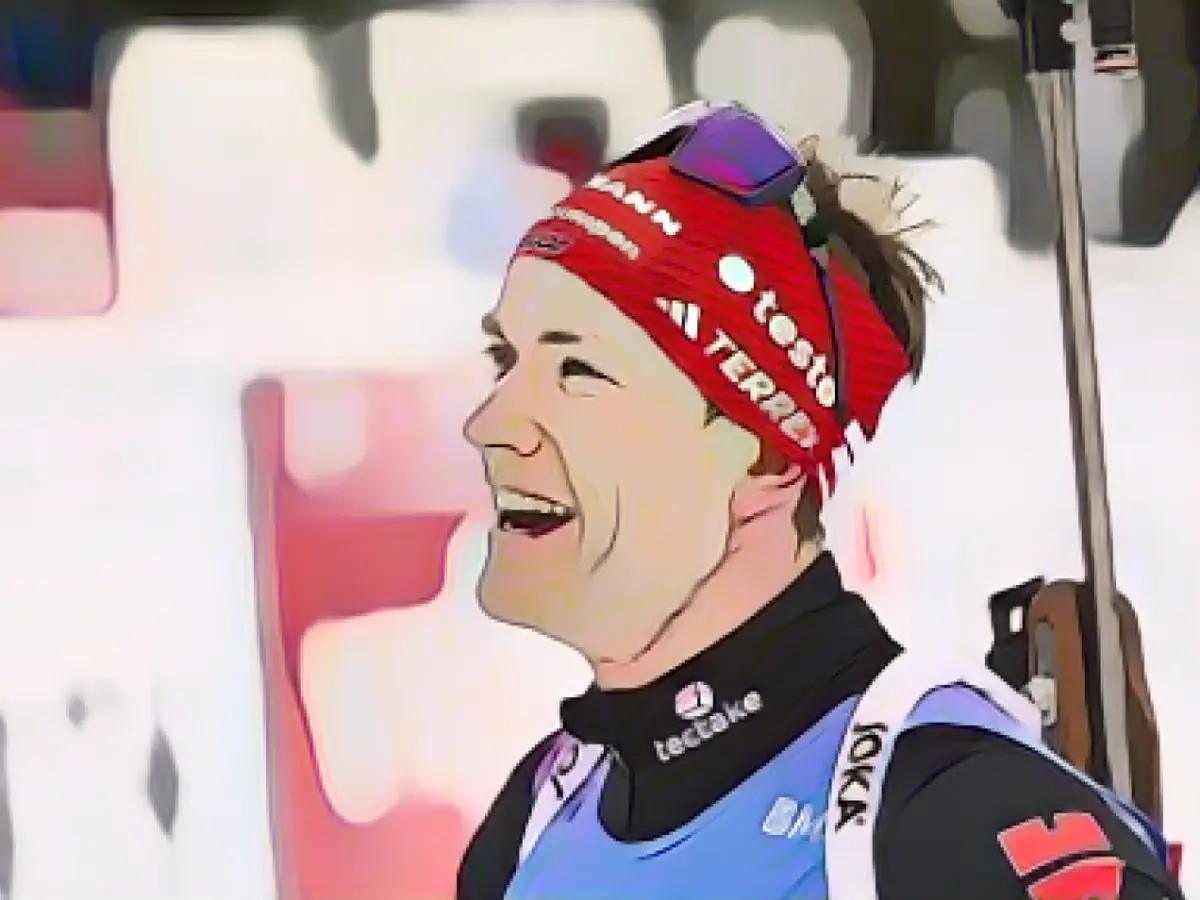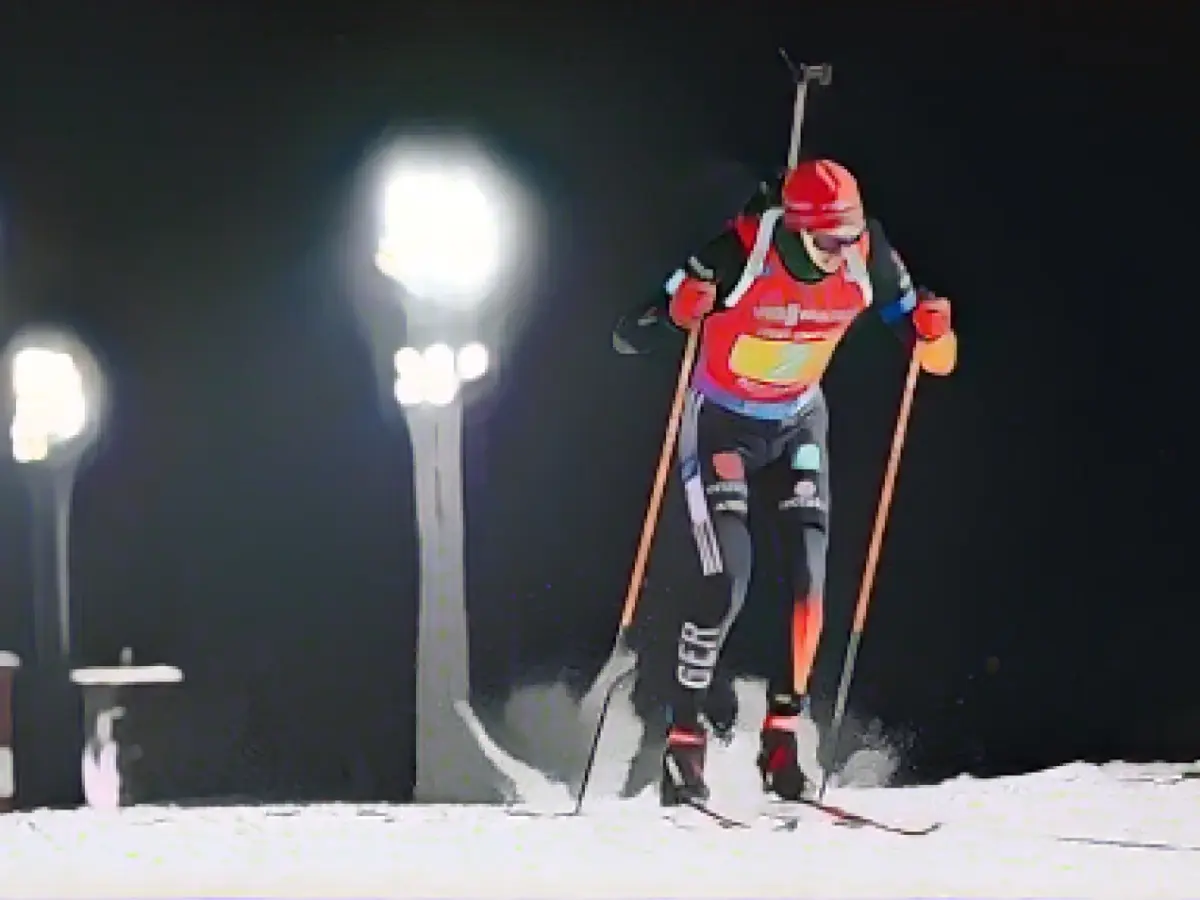Biathlon's Heavyweights: The Norwegian Dynasty Shines, German Struggles Persist
The Norwegian biathlon juggernaut rolled on in Lenzerheide, Switzerland, resilient in the face of an unforeseen team hiccup.
The German team, however, battled adversity at the World Cup debut, unable to land a spot on the podium. As the association's top athlete, David Zobel was thrilled to secure a respectable seventh-place finish, aiming to meet the internal World Cup standard that his teammates had already surpassed. "It's currently great fun in the team, and it's just brilliant," Zobel shared with ZDF.
The joy in the German camp was short-lived, as Benedikt Doll and Philipp Nawrath faced shooting range woes in the men's mass start. Doll, who had claimed his first victory of the season during the sprint on Friday, was outshone by teammates with shooting faults. Doll finished in 21st, while Nawrath lagged 24th.
A Hotel Incident Upsets Norwegian Star
Just before the Christmas break, the incident that would disrupt Norwegian biathlete Sturla Holm Laegreid's season took place in the security of their team hotel. According to the IBU, a shot was fired during a dry training session, landing Laegreid in hot water. He was banned from the mass start due to breaching safety rules, facing potential sanctions under the Grisons Police Act.
Laegreid expressed his remorse in an emotional interview with NRK, "I am deeply sorry for this incident and sincerely apologize to the entire biathlon family, my teammates, and the hotel owner for what took place." He also acknowledged the severity of the incident, stating, "In the worst case, this could have cost a life. It's a mess, and it's a brutal reminder for me and all biathletes about the importance of safety routines."
Franziska Preuß's Ascent
In the women's mass start, Franziska Preuß economically secured another top-ten finish in seventh place. Most recently recovering from a coronavirus infection, Preuß exhibited a sterling performance at the shooting range, losing out only due to stiff competition on the ski course.
"I'm pleased with my performance overall, especially considering the loss of momentum due to my recovery. The focus on shooting transformed a challenging race into an opportunity for growth," shared Preuß.
French Queen of the Mountains
Justine Braisaz-Bouchet's lead in the women's biathlon standings strengthened as she claimed her third consecutive win at Lenzerheide. With Elvira Öberg (Sweden) and Hanna Öberg closing the gap, vanessa Voigt and Janina Hettich-Walz faced additional challenges in their pursuit for World Cup glory.
Bitterling's Optimism
Despite a lack of podium finishes, Felix Bitterling, the German team's sports director, remained optimistic about the team's progress. "We're heading in the right direction, and although we're not at the front in every competition yet, anything else would be highly arrogant," he said.
Enrichment Data
Biathletes without podium finishes can face a multitude of challenges. Changing their focus to strengthen their weak points and adapting to the pressure to succeed are critical aspects in their continuous development within the sport.
Individual Performance
- Motivation and Confidence:
- Perseverance and Resilience: The absence of podiums may diminish motivation and confidence, but embracing challenges and persevering can pave the way for future success[1][3].
- Training and Preparation:
- Fine-tuning and Innovation: Athletes can adapt their training strategies, focusing on areas such as shooting accuracy or skiing speed to reach their desired podium finishes[3].
- Mental Preparation:
- Self-awareness and Pressure Management: Managing stress and pressure, crafting personal coping strategies, and developing mental strength help biathletes perform optimally, even with limited success[2][4].
Team Dynamics
- Role Clarification and Motivation:
- Reassessment and Regrouping: Teams may suffer from declining morale, inciting the need to reassess roles, reinstill confidence, and rekindle team spirit[2][4].
- Support Systems and Collective Growth:
- Thriving in Adversity: Overcoming challenges together as a team helps foster unity and resilience, ultimately strengthening the collective performance of each member[1][3].
- Constructive Feedback and Learning:
- Continuous Improvement and Collective Success: Teams can learn from their mistakes, working together to sharpen their skills, ultimately propelling them towards better success[1][3].
Examples
- Ove Akindeles struggled to gain traction in his early biathlon career, eventually finding success through a focus on mental preparation and developing a work-life balance. His dedication and commitment provided the foundation for his eventual Olympic medal in the team relay event[1].
In conclusion, biathletes without podium finishes face numerous challenges within their individual performance and team dynamics. Embracing adversity, learning from setbacks, and fine-tuning strategies can help athletes overcome obstacles and ultimately thrive in the competitive landscape of biathlon.
References:
- Hoff, D. h. (2014, December 15). How to Build Mental Toughness.
- Kaviani, M., Griffiths, M. D., & Salmon, P. (2016). "Stress and Performance: Biopsychosocial Interactions and Modelling Physiological, Neuroendocrine, and Immune Responses." Physiology, 31(Supplement 1), b61–b64.
- Masinski, T. (2017, December 11). "Five tips for high-performance shooting - Biathlon World Cup Arber."
- Ramirez, J., & Kaschak, M. P. (2007). "The Construction of Mental Toughness: A Ramified Factorial Approach." Psychology of Sport and Exercise, 9(5), 543–568.








